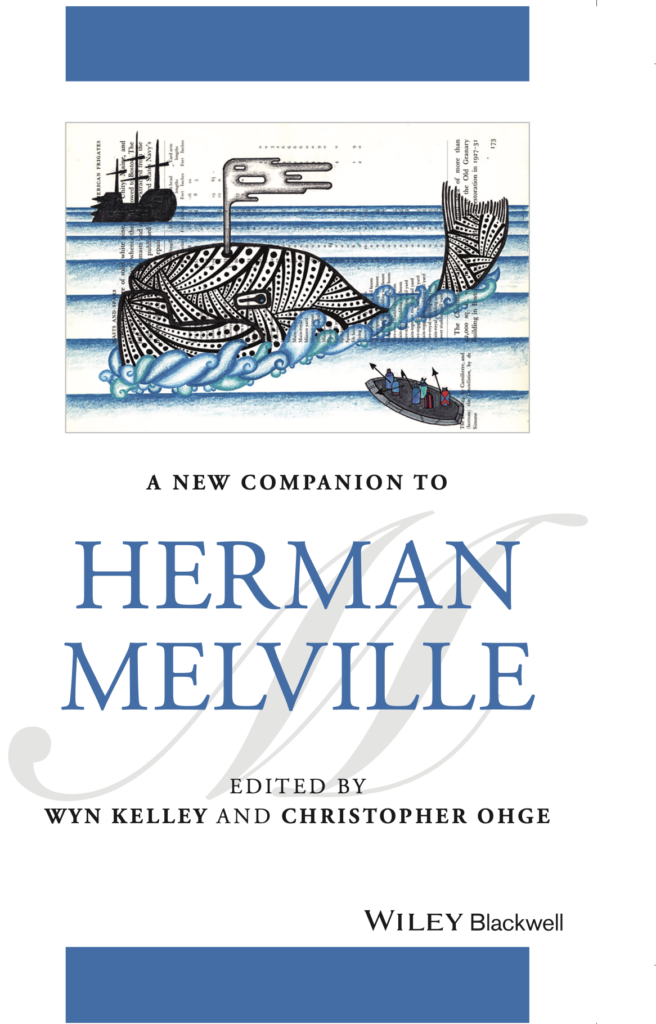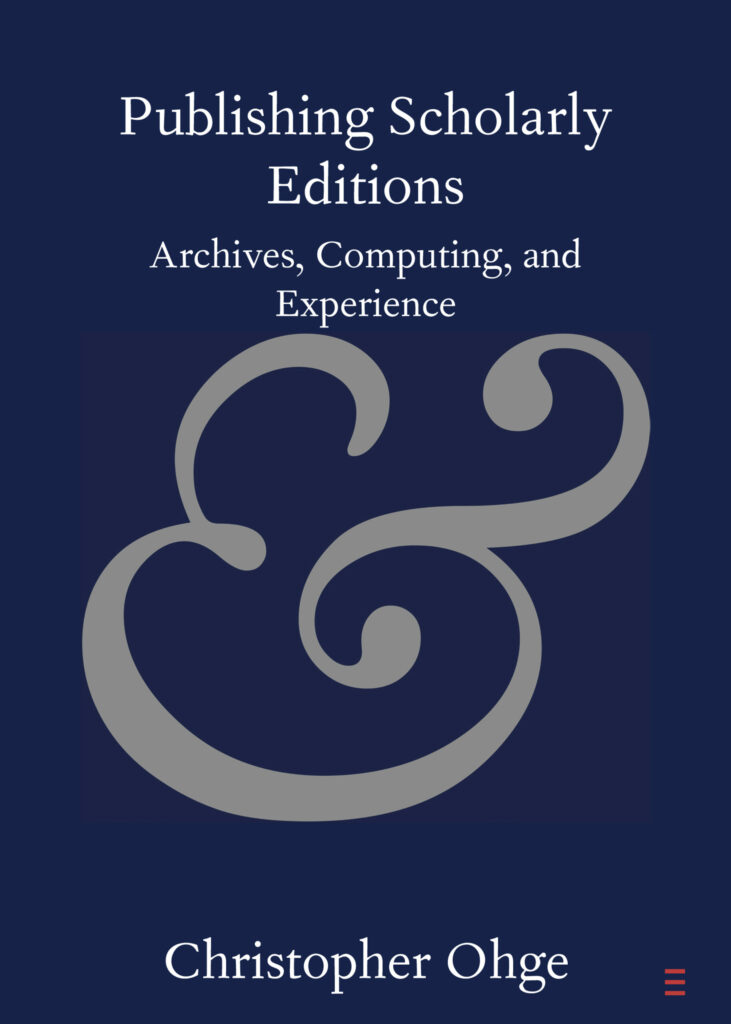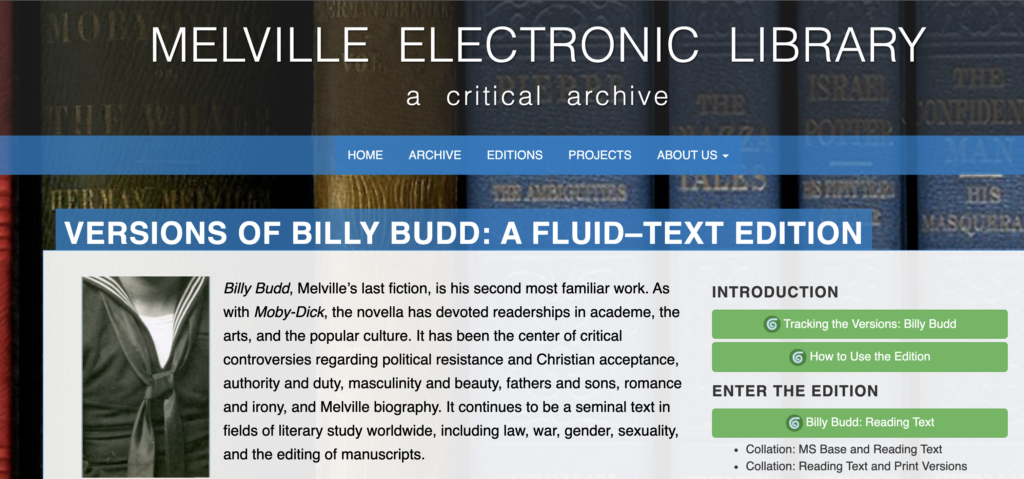
A New Companion to Herman Melville, co-edited with Wyn Kelley (Wiley-Blackwell, 2022).
A New Companion to Herman Melville delivers an insightful examination of Melville for the twenty-first century. Building on the success of the first Blackwell Companion to Herman Melville, and offering a variety of tools for reading, writing, and teaching Melville and other authors, this New Companion offers 47 new chapters using critical, technological, and aesthetic practices to read Melville in exciting and revelatory ways.
In addition to considering critical theories of race, gender, sexuality, religion, transatlantic and hemispheric studies, digital humanities, book history, neurodiversity, and new biography and reception studies, this book offers:
- A thorough introduction to the life of Melville, as well as the twentieth- and twenty-first-century revivals of his work
- Comprehensive explorations of Melville’s works, including Moby-Dick, Pierre, Piazza Tales, and Israel Potter, as well as his poems and poetic masterpiece Clarel
- Practical discussions of material books, print culture, and digital technologies as applied to Melville
- In-depth examinations of Melville’s treatment of the natural world
- Two symposium sections with concise reflections on art and adaptation, and on teaching and public engagement

Publishing Scholarly Editions: Archives, Computing, and Experience (Cambridge University Press, 2021).
(Access the Figures here. Access the Errata here.)
Publishing Scholarly Editions offers new intellectual tools for publishing digital editions that bring readers closer to the experimental practices of literature, editing, and reading. After the Introduction (Section 1), Sections 2 and 3 frame intentionality and data analysis as intersubjective, interrelated, and illustrative of experience-as-experimentation. These ideas are demonstrated in two editorial exhibitions of nineteenth-century works: Herman Melville’s Billy Budd, Sailor, and the anti-slavery anthology The Bow in the Cloud, edited by Mary Anne Rawson. Section 4 uses pragmatism to rethink editorial principles and data modelling, arguing for a broader conception of the edition rooted in data collections and multimedia experience. The Conclusion (Section 5) draws attention to the challenges of publishing digital editions, and why digital editions have failed to be supported by the publishing industry. If publications are conceived as pragmatic inventions based on reliable, open-access data collections, then editing can embrace the critical, aesthetic, and experimental affordances of editions of experience.
Reviews and Endorsements
“This is an EXCELLENT book. Useful and timely.”
–– Peter Robinson, Bateman Professor of English at the University of Saskatchewan and founder of Inkless Editions
“In Publishing Scholarly Editions, Christopher Ohge cogently argues for approaching editing in pragmatic terms, explicitly invoking the ideas of William James and John Dewey. Such an approach emphasizes the complexities of writerly acts, publishing exigencies, and readerly interpretations and charts the networks of actions and practices that constitute literary experience. Through a lucid contribution to editorial theory and deftly articulated case studies, Ohge shows the opportunities that scholarly editing and especially digital editing provide for displaying these complexities and networks and opening up, rather than closing down, meaning.”
–– Professor Samuel Otter, Slusser Chair in English, University of California, Berkeley, and author of Melville’s Anatomies (1999).
‘… smart, concise, and exceedingly practical … Publishing Scholarly Editions is as pragmatic as the theory it articulates, blending theorization, personal reflection, concrete and enjoyable examples, and helpful figures. … All those working in scholarly editing should read it’.
— Laura L. Mielke, Scholarly Editing 40 (2022), DOI: 10.55520/TK54TDH2.
‘Ohge develops a number of fascinating examples in his book … drawn from his own impressive editorial work … [H]is objective in this engaging and thought-provoking book — one necessary for our juncture in time — is to raise questions more than to offer answers (certainly not easy ones). … Indeed, the last chapter raises a question that is critical to the future of scholarly editing: “What, then, is the meaning and function of the publisher in the digital age?” In reality, this question is essential to the future of humanistic scholarship generally, and Ohge’s probing exploration of it is one of the most important dimensions of his book.’
–– Geoffrey Turnovsky, Associate Professor of French and Co-Director of Textual Studies, University of Washington, in Textual Cultures 15.1 (Spring 2022).

Versions of Billy Budd: A Fluid Text Edition, co-edited with John Bryant and Wyn Kelley (Melville Electronic Library, 2019).
This born-digital edition of Herman Melville’s last, uncompleted novella offers the first full digital transcription of Melville’s manuscript and establishes a text that comes closest to the manuscript’s unfinished state. It includes a critical, annotated reading text, as well as links to the page facsimiles and diplomatic transcriptions of the manuscript.
The text established in this edition has also been reprinted in Volume B of the Norton Anthology of American Literature, 10th edition, edited by Robert Levine (2022).